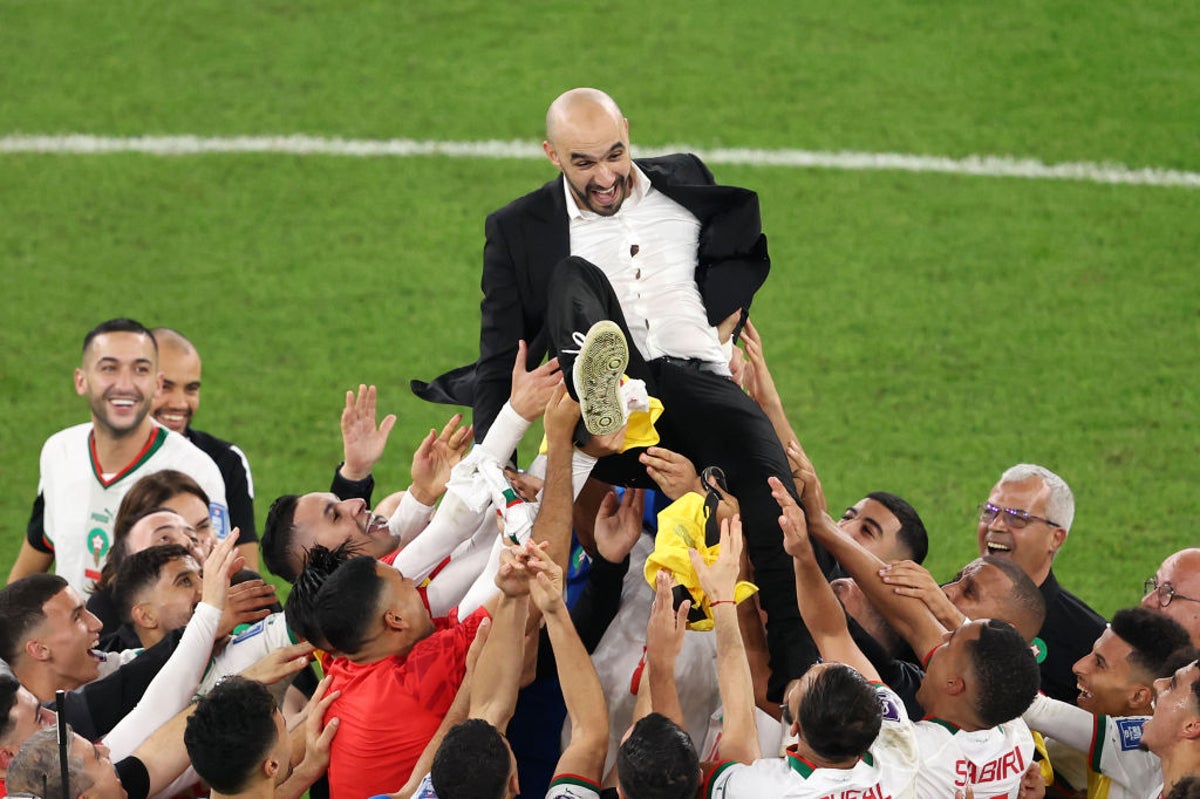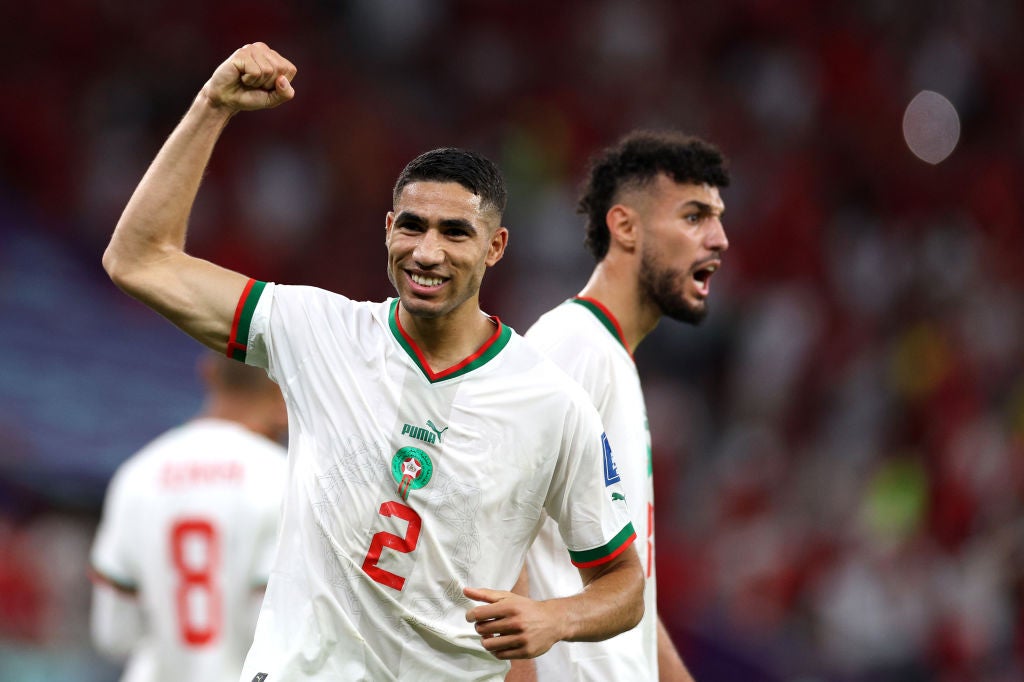
And then there was one. Morocco are the last African side standing but at the first Arab World Cup, they are more than that. They are carrying a continent’s hopes, but they are representing the Middle East as well as Africa. They are the underdogs against Spain, but they believe they will have the support of two vast regions.
“Before it was just the Moroccans who supported us,” said their bullish head coach Walid Regragui. “Now it is the Africans and Arabs. We will come in with a winner’s attitude. We will come in swinging. We want to hoist our Moroccan flag well up high. The great nations are still here and it is up to us to give them a run for their money.”
Certainly there is no inferiority complex from Regragui. He accepts that Spain are widely expected to win. He respects their past. But he believes the future could lie in Morocco, if not elsewhere in Africa.
“We are coming up against one of the best footballing nations in the world and they are one of the favourites,” he said. “But we have some things up our sleeve, we have one extra day of rest and we hope to pull a surprise out of the bag.
“We tell this to our kids that you have to have dreams. Africa has never won a World Cup. Why not give them this dream? In 20 or 30 years’ time maybe Morocco or Senegal will win the World Cup and then you will look back and say: ‘He did say that.’”
For now, it is just a dream and, for the fourth consecutive World Cup, there may be no African quarter-finalist. There comes a point in each tournament when the continent searches for a breakthrough and it falls to one team.
This World Cup has brought grounds for positivity, in the surprise wins Tunisia recorded against France and Cameroon against Brazil, in the progress of two sides to the last 16. Yet Senegal’s exit to England means it is down to Morocco. They have already displayed a capacity to trouble their supposed superiors. They were pitted in a pool with two of the top three from the last World Cup. They drew with Croatia, beat Belgium and became the first African team to top a group since 1998. For the first time since 1986, they are in the knockout stages.
“We haven’t been to the last 16 for 36 years whereas it is part and parcel of Spanish football,” Regragui reflected. Four years ago, Spain progressed with the aid of an injury-time equaliser by Iago Aspas against Morocco. It was the Atlas Lions’ only point then but denied them a famous victory.
“We are not seeking revenge at all, we are not looking at what happened in the past,” added Regragui. “It is not the same team as in 2018 or the same Spanish team.”
But the two countries are only separated by about eight miles of sea and the footballing links between them extend beyond that. Achraf Hakimi, perhaps Morocco’s best player, was born in Madrid. Four of the current squad ply their trade in Spain.
“I know all is fair in love and war but for us it is football, there are players on both sides who want to defend their country,” Regragui explained. “Even if we have Spanish-born players, they are Moroccans.”

Goalkeeper Munir Mohamedi is an admirer of their opponents. “I like the football culture of Spain,” he said. “Their team 15 years ago started to play a high line, tiki-taka and with talented players in midfield. You own the ball and don’t give it away, You know regardless of the name it is always Spain.”
Morocco can’t play the same way. “They have 70 percent possession on average but Japan had 17 percent and they won,” said Ragregui. He noted the victories for Japan against Germany and Saudi Arabia against Argentina, both with much less of the ball and smiled. “Maybe we should be looking at points for possession. We hope tomorrow Spain won’t know what to do with all the possession.”
His own gameplan is different, but Morocco have clean sheets against Croatia and Belgium already. They have defended well and they are aiming high. “My ambitions have no limits,” Ragregui said.
“Now we are the last African team left, I hope we can have a good game and to make history for my country.”







